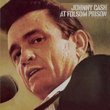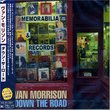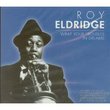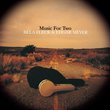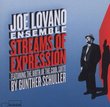| All Artists: Gustav Mahler, Michael Tilson Thomas, San Francisco Symphony Orchestra Title: Mahler: Symphony No. 7 [Hybrid SACD] Members Wishing: 0 Total Copies: 0 Label: San Francisco Sym Original Release Date: 1/1/2005 Re-Release Date: 10/11/2005 Album Type: Hybrid SACD - DSD, Import Genre: Classical Style: Symphonies Number of Discs: 1 SwapaCD Credits: 1 UPC: 821936000922 |
Search - Gustav Mahler, Michael Tilson Thomas, San Francisco Symphony Orchestra :: Mahler: Symphony No. 7 [Hybrid SACD]
![Mahler: Symphony No. 7 [Hybrid SACD]](https://nationalbookswap.com/cd//l/87/1087/6131087.jpg) | Gustav Mahler, Michael Tilson Thomas, San Francisco Symphony Orchestra Mahler: Symphony No. 7 [Hybrid SACD] Genre: Classical
Michael Tilson Thomas's Mahler cycle continues with this well-played Seventh. Once rarely heard, the work is becoming a regular recording and concert hall visitor. The San Francisco Symphony is in terrific form here, espec... more » |
Larger Image |
CD DetailsSynopsis
Amazon.com Michael Tilson Thomas's Mahler cycle continues with this well-played Seventh. Once rarely heard, the work is becoming a regular recording and concert hall visitor. The San Francisco Symphony is in terrific form here, especially in the last movement, where the brass really bring down the house and the whole band keeps up with the conductor's tempo shifts and contrasts. The second Nachtmusik movement is a winner, with its odd combination of harp, guitar and mandolin and its characterful mood. The opening movement is a bit problematic, well-played but a bit too fast for comfort, but the Scherzo rocks. This version differs from MTT?s excellent London Symphony recording made in 1999 earlier for RCA, which was free of some of the more idiosyncratic touches found here. But if you don't mind a first movement that never really adheres, you'll love this new one. For collectors of the series and SACD fans, it's a must-have, and all Mahlerites will want to hear MTT's latest thoughts on the work. --Dan Davis Similarly Requested CDs
|
CD ReviewsPossibly the best of the series... Ian Shields | Lafayette, CA USA | 10/31/2005 (4 out of 5 stars) "As a classical percussionist who bought this disc, and spent the whole night repeating the experience, who then found that another classical musician friend had done the same with his new copy, both of us floored by what we were hearing and nearly brought to tears by this extraordinary performance, it was educational to read the following statement a couple of weeks later in an Amazon customer review: "The seventh, Mahler's most enigmatic, complex, and orchestrally astounding symphony sounds here, in the hands of Michael Tilson Thomas and his San Francisco Symphony, commonplace, unoriginal, and boring." Commonplace. Unoriginal. Boring. Amazing. There you have it. That's how different people's ears are. This is why, in the end, if you are a musician, conductor, or composer, you can give up on asking audiences what to play. You have only your own well-trained instincts and interests as your guide. You must therefore damn the torpedoes, just like Mahler, and just like MTT and the SFSO do on this jaw-dropping disc. I will not, however, tell you that you will be thrilled and grateful on every listen, as we musicians were that night, giddily wearing out our repeat buttons. I've learned my lesson. You might instead have indigestion, or perhaps an earphone on the fritz, so you'll find it irritating. Perhaps you are a Mahlerian interpretive genius, and Tilson Thomas is a pipsqueak and an ingrate who never calls anymore, so you'll find it arrogant and presumptuous. Or perhaps, you don't like Mahler at all, in which case, you've done a very strange thing by purchasing this album. But I will warn you (in my role as your therapist): it's not going to get any better than this, and you are doomed to disappointment for the rest of your life, so you might as well start the drinking now. No orchestra has never been more attached to the conductor's cerebral cortex, no brass section more laserlike, no woodwinds more eerie, no timpanist more brilliant, no string section tighter, nor any conductor more poised within the prismatic structures, technical demands, and sheer loony energy of Mahler than this one. Personally, I have a rehearsal to go to, and after that I shall go home, where there's a certain orange and cream colored album, and a repeat button that's got my name on it. Bravi a tutti, Ian Shields" Mixed bag but mainly on target Larry VanDeSande | Mason, Michigan United States | 09/01/2006 (4 out of 5 stars) "This is Michael Tilson Thomas's second recording of the Mahler Symphony No. 7, sometimes called "Symphony of the Night" for its two sections marked night music (nachtmusik). MTT's first recording, with the London Symphony Orchestra, was received very well and holds a place of high honor in both the current Penguin Guide and American Record Guide's most recent (2001) Mahler overview. This production won MTT a Grammy as best clasical recording of 2006. At 81 minutes, MTT's older recording put it about in the middle of the universe of well-considerd Mahler 7s, which range from about 77-84 minutes. This time, MTT skittered through the score in about 77 minutes, making this account speedy by contrast. While musical pundits have considered this a song for the night because of its two sections of nachtmusik, Michael Steinberg's notes to this issue suggest it is more likely four sections of night music followed by the sunshine of day, announced by the drum roll that kicks off the final movement. "Few here will fail to be reminded of Die Meistersinger," Steinberg wrote about the opening notes of the finale. I've not heard MTT's earlier recording so I don't know where he skips time or space to cut four minutes. This recording, made in concert in San Francsisco's Davies Hall and recorded in somewhat spotlighted SACD sound, may have gained time by way of the energy created in a live performance. The annotation says this was recorded during March 9-12, 2005 but fails to disclose the number of performances given during that span. MTT's opening is wonderful, in my opinion. It is echt-Mahlerian -- martial, booming with oomph and heart, all the qualities that make up this philosophically confused and emotional strained composer. During the first Nachtmusik section, conductor and band seem to lighten the reins a bit and perhaps slacken. The third movement begins to sound like spotlighted sound. How does a tuba stick out like that in the orchestral morass of a Mahler symphony, anyway? The fourth movement -- the second Nachtmusik section -- is makred Andante amoroso and Tilson Thomas plays this for every inch of its amorous nature. A spirit of quiet warmth and good humor permeate the section, which is a marked contrast to everything that came before it. In the episodic finale, where a conductor is most challenged to keep it all together, MTT reminds me of tactics he used in his recording of the Mahler Symphony No. 6, especially his tendency to speed up and slow down the motion of the orchestra in interceding sections of the score. It closes is flames of glory, carrying off MTT's overall message of humanity and ecstasy. I wouldn't call this my favorite version of the Mahler 7 but it's certianly a good one. The hybrid SACD recording is very good -- marked by clarity, depth and projection of a very good on pitch orchestra -- but it would also fall victim to claims that the engineers spotlighted certain sections for added effect. While a fabulous sounding CD, it is not always a very natural sounding performance. I'm not one to dawdle when listening to Mahler and I don't like conductors that drag out the music beyond its capacity to breathe and live. At 77 minutes, this version is on pace with my favorite recording of the score, the one by Vaclav Neumann and the Gewandhaus Orchestra recorded for Berlin Classics in 1970. I enjoy Neumann's overall conception more than MTT's, which is more literal and less atmospheric. Many Mahlerites believe the Symphony No. 7 is nothing but atmosphere; I do not hold membership in that sect. And, for all the wonder of the San Francisco Symphony Orchestra on display in this magnificent sounding CD, I believe the German orchestra did them one better three and one-half decades earlier, especially the fruitier sounding horns. I also appreciate the more natural sound of the older CD. These preferences aside, this new MTT version should be a contender for everyone except those that must wring every ounce of angst out of the score, and it should become the preferred version for audiophiles willing to pay $27 for a single CD performance of this music." Sensational and electrifying!! Robert C. Murphy | St. Paul, MN | 10/28/2005 (5 out of 5 stars) "I read with great interest one reviewer's critique who found this performance "sadly disappointing." I have been collecting the whole MTT/SFS Mahler cycle and being a native of the San Francisco Bay Area (but living in St. Paul, MN) I always try to show loyatly by waiting to buy the next Mahler cd when I am actually in the city on vacation. After reading the scathing critique of this performance I decided to break "tradition" and buy it here in Minnesota. I was puzzled because all the reviews I had heard of the actual concert perforamnces by friends in San Francisco were total opposite from what was being written. So after hearing a stunning performance of Mahler Symphony No. 3 with Andrew Litton and the Minnesota Orchestra, I ventured to my local record store and was able to find it.
I arrived home and took out my study score to follow along. From the very beginning opening rhythmic figure this performance had me hooked. I think the tempos are just right. In contrast to MTT's very fine perforamnce with the LSO on RCA, this one took my breath away from the very beginning. Because MTT recorded it just about 6 years previous, how can you expect it to be the same performance. It's a different orchestra, different space, etc, and plus the work is large enough that can take several interpretations. I do think those three minutes add to an even BETTER performance. While I love the previous MTT performance, I felt the tempos were just a bit earth-bound. This current perforance really takes flight and has a sense of forward momentum that I find bracing and electrifying. The sense of timing and the tempo relationships within the same movements are superbly executed. I evntually ended up listening to this cd 3 times in a row before I eventually went to bed! The orchestra sounds sensational and I didn't hear any of the intonation problems that the previous reviewer spoke of. I do wish the percucssion had a bit more presence, but other than I think this is the best the SF Symphony has sounded on the Mahler cycle so far. I didn't think it was possible, but this MTT performance has replaced the classic older CBS Bernstein performance as my favorite. I think the MTT/Mahler/SFS cycle has been very exciting. I am not as taken with the 4th Symphony becuase I feel that MTT maybe micro-managed things a bit much in that performance that it really does not take flight. Only two more symphonies to go, the 5th, which they just taped, and the 8th which comes around in performance in late May early June, along wtih the 10th of the Adagio and the Ruckert-Lieder will complete a very sensational, stunning and superbly executed Mahler cycle that will not be challenged for the foreseeable future! Way to go, MTT and the San Francisco Symphony!!" |

 Track Listings (5) - Disc #1
Track Listings (5) - Disc #1